There is no great famine in Los Angeles when it comes to exemplary Chinese food. For me, a second-generation daughter of Canton, authentic Chinese food hails from large round tables. Ceremony is the sense that guides the meal. The humble rice bowl—plastic or porcelain, white and nicked by use, or patterned with blue florals or ornate red patterns—is one’s place at the table. With the first trade of a cool empty bowl for one warmed with a heap of rice, the lazy Susan spins, and the meal begins.
But the food at the height of popularity beyond, in my case, Cantonese families, is either that which lives at the table aforementioned—in homes or in families’ regular haunts—or globally savored from fusion ingredient trends: tasty, innovative, but flashy.
Especially for grown children of immigrants, the pull between cultures rests in the hyphen between. Speaking for myself, that means Chinese and American. But now there’s a restaurant that speaks for me.
This spring, I began to consider that bowl with new significance, filled with something other than rice: noodles. At homestyle restaurant Woon on the corner of Temple Street and Reno Street in Historic Filipinotown, Los Angeles, they come thick, chewy, wok-fired with rich beef and savory shiitake mushrooms, swirled at your table with chili garlic sauce and white vinegar to your taste, each bite punctuated with the crunch of leafy little bulbs of bok choy. Woon itself translates to “bowl” in Chinese, and these flavors translate from owner Keegan Fong’s childhood, a recipe by his mother, Julie Chen Fong. You’ll know her by her petite stature, denim apron, and a red floral bandana.
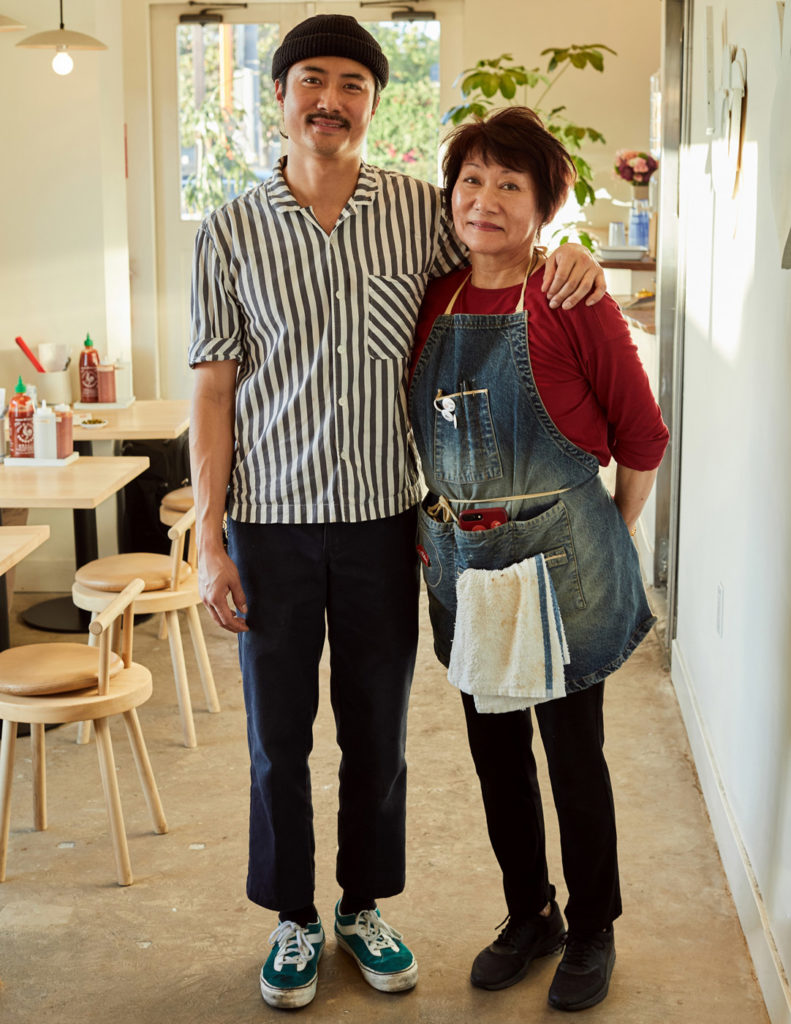
Woon’s beef noodles are the star amongst a host of flavors Keegan and his sister Andrea grew up on, enjoyed by all the friends who came through the Fong house, whether the clock said it was a meal time or not.
Hospitality has always come easily to Julie, and Keegan tells me about holidays in his family growing up, during which “someone from the outside” would join in. “Every year, we’d always have a guest for Christmas Eve,” he says. “Someone whose parents were out of town, someone whose family lives far away. That was an easy introduction into their culture.”
It’s taken ten years of convincing for Keegan to persuade his mother to open the family’s first restaurant. And the feeling of walking in is a homecoming.
Julie’s beef noodles, fried tofu fish cakes, and tender, crisp gai lan (Chinese broccoli) are offered, recipes unchanged and best enjoyed shared. For Keegan, Woon is an extension of his mother Julie Chen Fong’s home, with the aesthetic sensibilities of his living room.
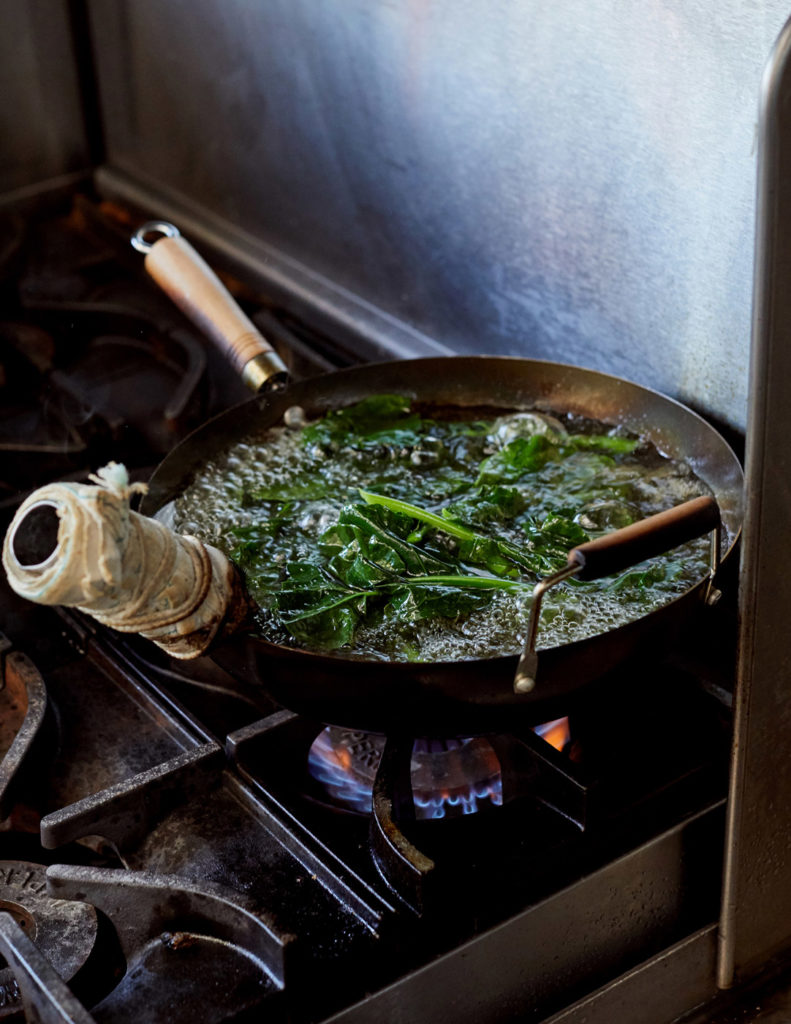
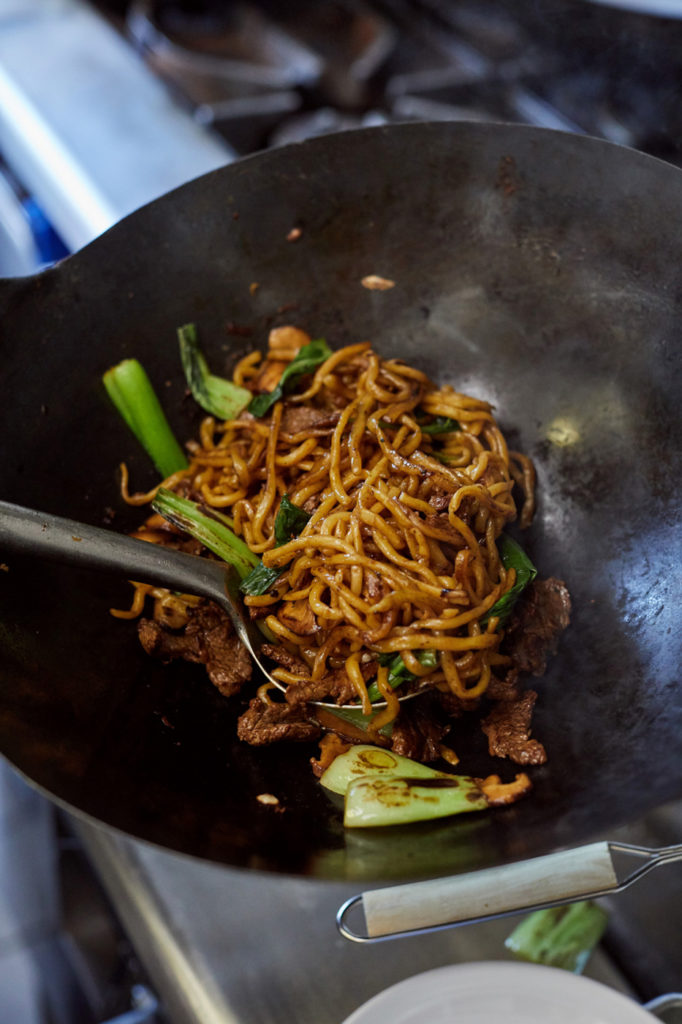
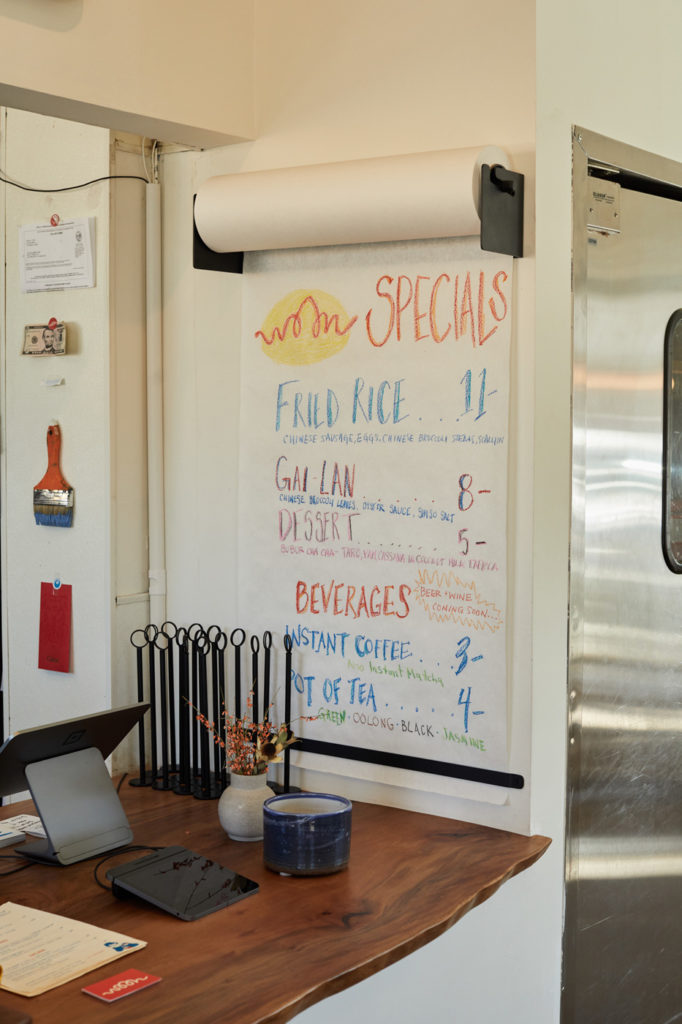
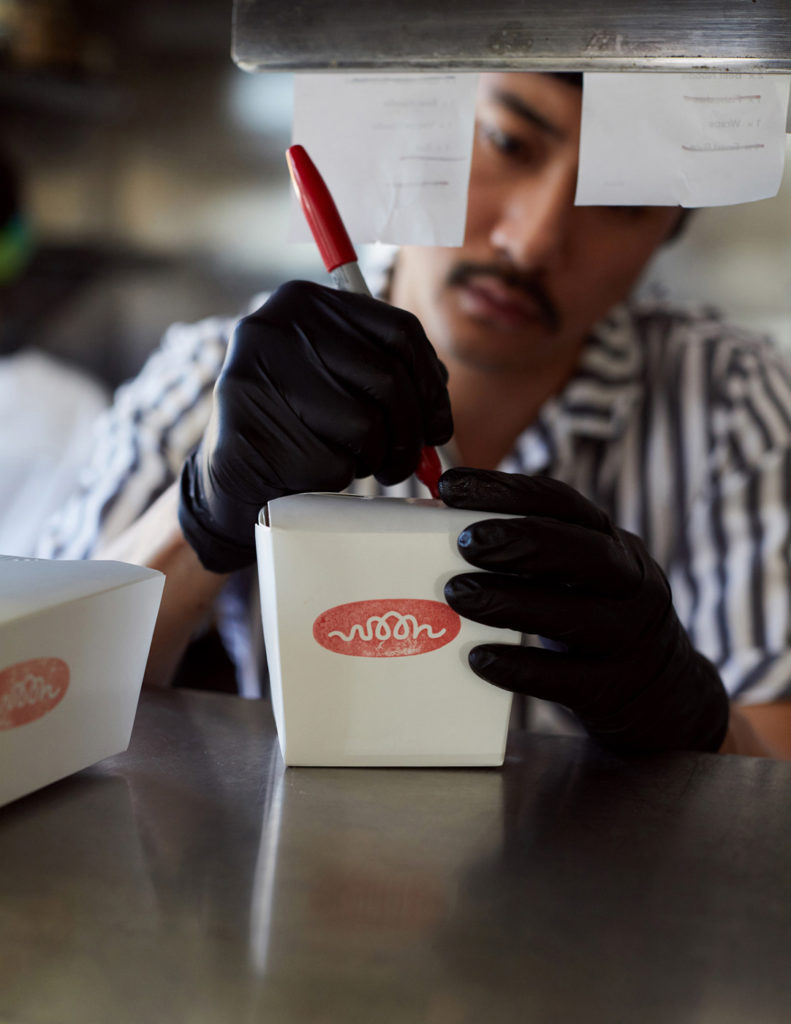
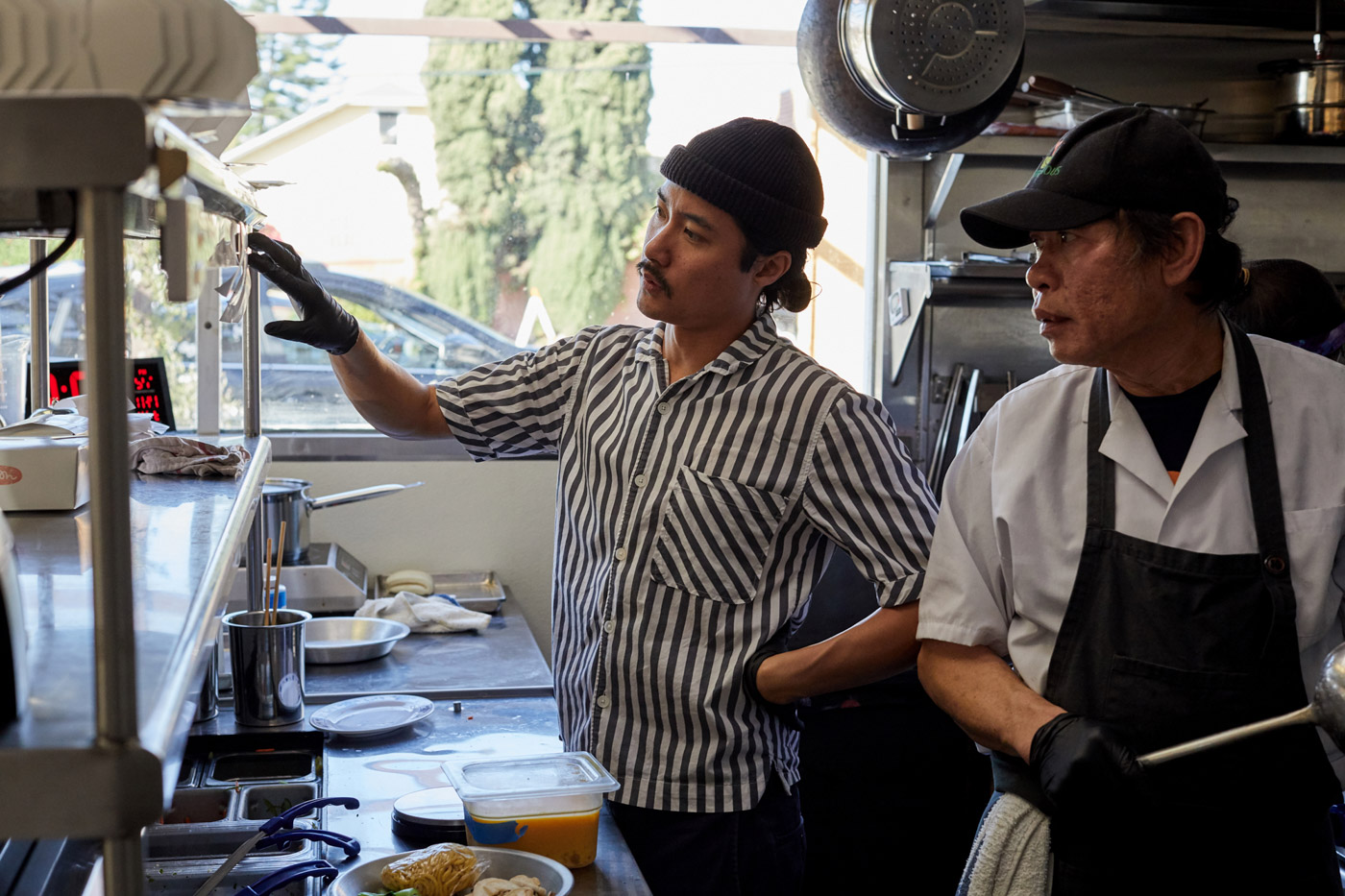
Affectionately called Mama Fong by many, Julie is Shanghai-born and was raised in Hong Kong before moving at age eighteen to Los Angeles’ San Fernando Valley with her family. Growing up, she tired of her mother’s dishes relying on dark soy, sugar and the heavy pork her father favored. Julie is a self-taught cook. She tells me she’s always had an independent streak, and as we observe family photos on display in the restaurant, she’s visibly proud of Keegan and her daughter Andrea, who she raised as a single mother in San Marino, stocking the fridge with tofu fish cakes as after-school snacks.
Discussions of what it means to be first-generation, second-generation American and onward typically circle around ideas of distance from a motherland’s shore—a lack, or a loss of culture. But as I sit inside a windowed wall, Woon feels like a gain.
Recipes can be elusive for children of Chinese immigrants, as Chinese mothers reject both the metric and imperial systems in favor of the bowls in their own cupboards to measure balances of soy and oyster sauce, sesame oil and Worcestershire. As many life lessons are passed on nonverbally in the home, this knowledge is hard-won. In the staff’s first days in the kitchen, they watched Julie make her magic over the wok and audited closely. Wait, what did you just do? How much is a “piece” of that?
Visiting Woon made me consider second-generation traditions. What monument is there to what we have to offer? I think Woon might be the first of many.
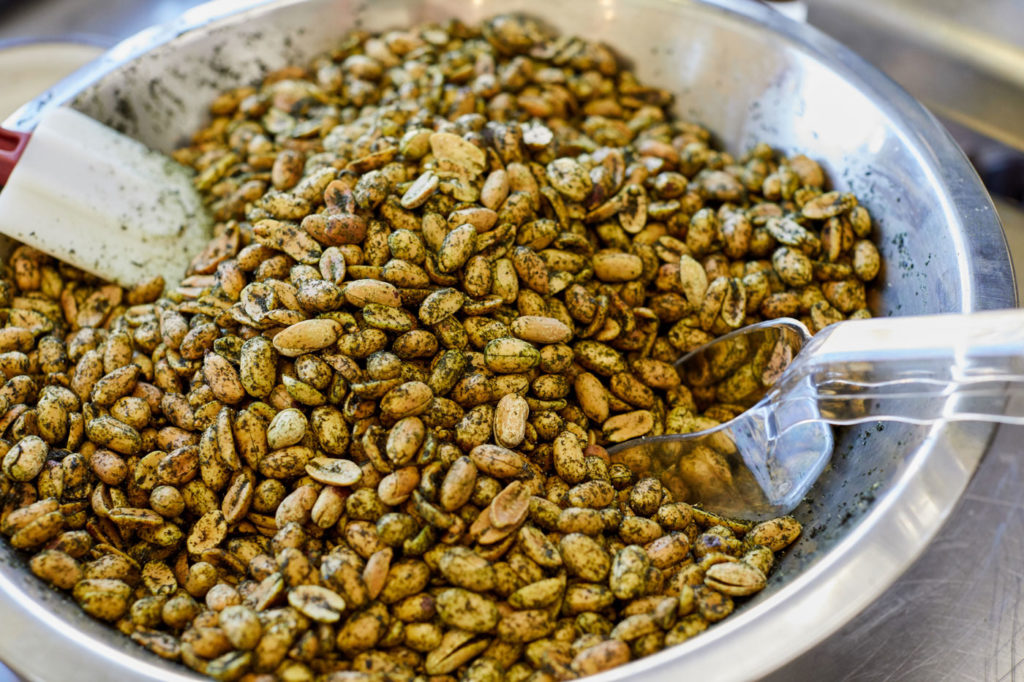
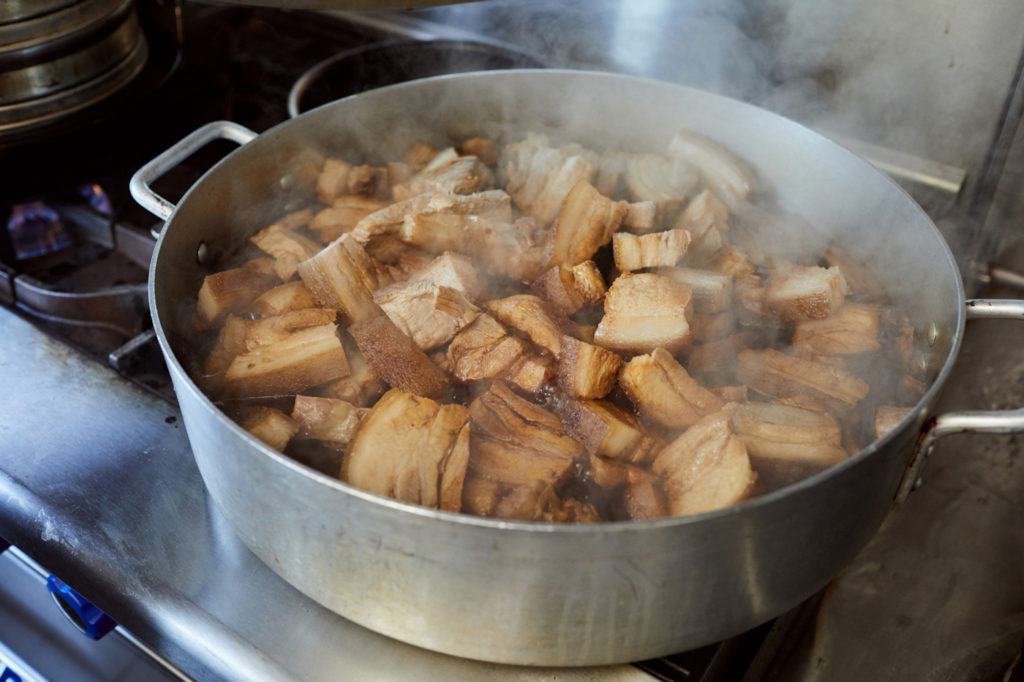
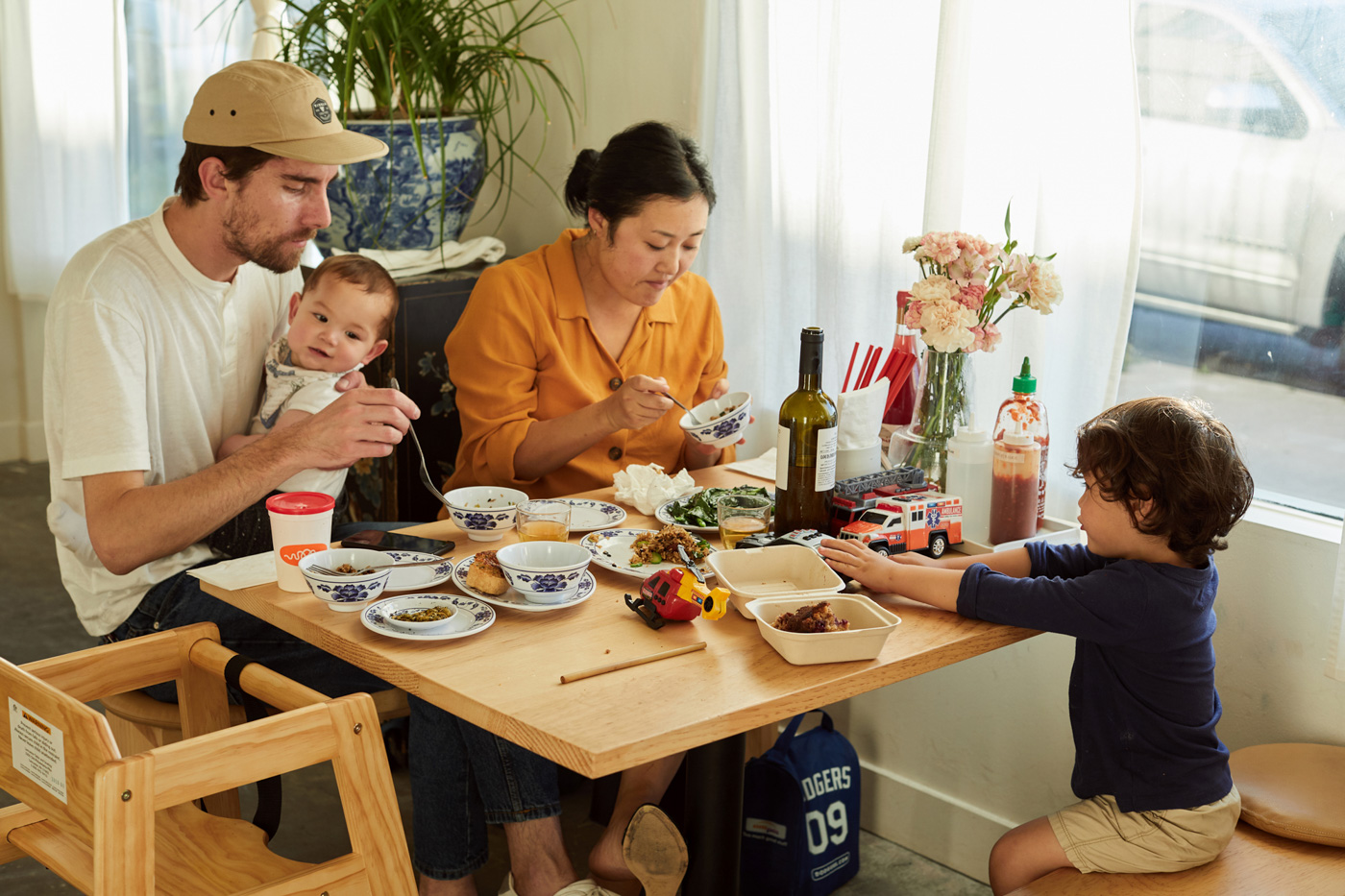
“It’s like a preservation,” Keegan says. “Growing up, I ignored all of those things. I spoke English only because I wanted to fit in. I hid all of the food that I ate and secretly always ate my mom’s food. This place is essentially an evolution—of my mom’s, our culture, and my upbringing. It’s a mix of her and me. It’s like tradition, but also my new tradition.”
The sign outside says “Homestyle Chinese Food.” I knew it was real when I saw that lap cheung, a sweet Cantonese sausage, was a key ingredient in the fried rice, shuffled in with fluffy egg, coined gai lan, and a satisfying sprinkle of green onion. Like a jukebox of nostalgia, a refrigerator stocks childhood hits like cold boxes of Vitasoy and my favorite chrysanthemum tea. And don’t be shy about asking about the natural wine or beer on tap. Cans of Royal Milk Tea and light, classic Taiwan beer are also solid self-serve choices.
There is a shared victory happening in Historic Filipinotown right now, an alliance of Asian-American-owned food businesses taking a stance on the legacies and caring deeply for this Angeleno neighborhood. But upon first entry to this cozy minimalist space, one could misread from the hip atmosphere that “hip” is all you’re going to get. For all of the ways the restaurant is an attractive L.A. debutante, with quick judgments, one sorely misses out on what a hometown girl she is.
“We got a Yelp review where it was like, ‘This is Asian food for white people,’ and that got me really, really upset,” Keegan tells me.
Woon is a family business down to the smallest touches; friends of the Fong’s have touched every element of the space. Ty Williams’ art hangs on every wall, and it’s his along with Mama Fong’s brushstrokes that introduce the menu above the ordering counter in English and Chinese.
“Both cabinets are my mom’s. The table in the back—I have that table at home. We built this stuff,” Keegan says. “We wanted it to be like how I would live at home.”
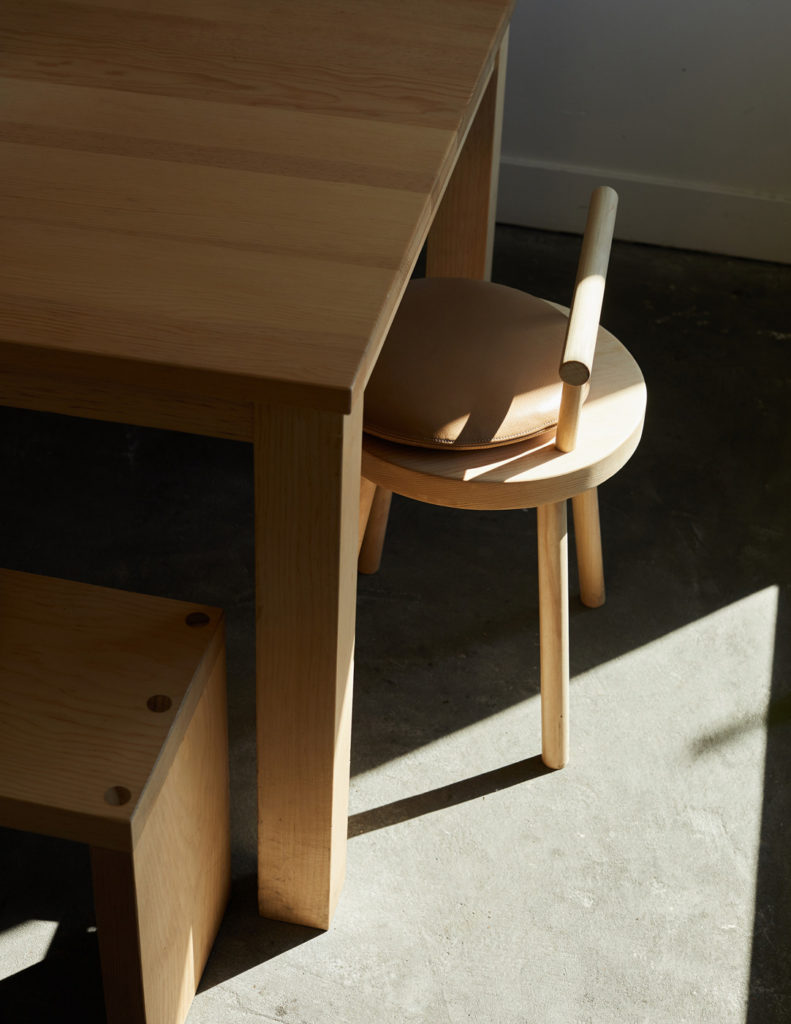
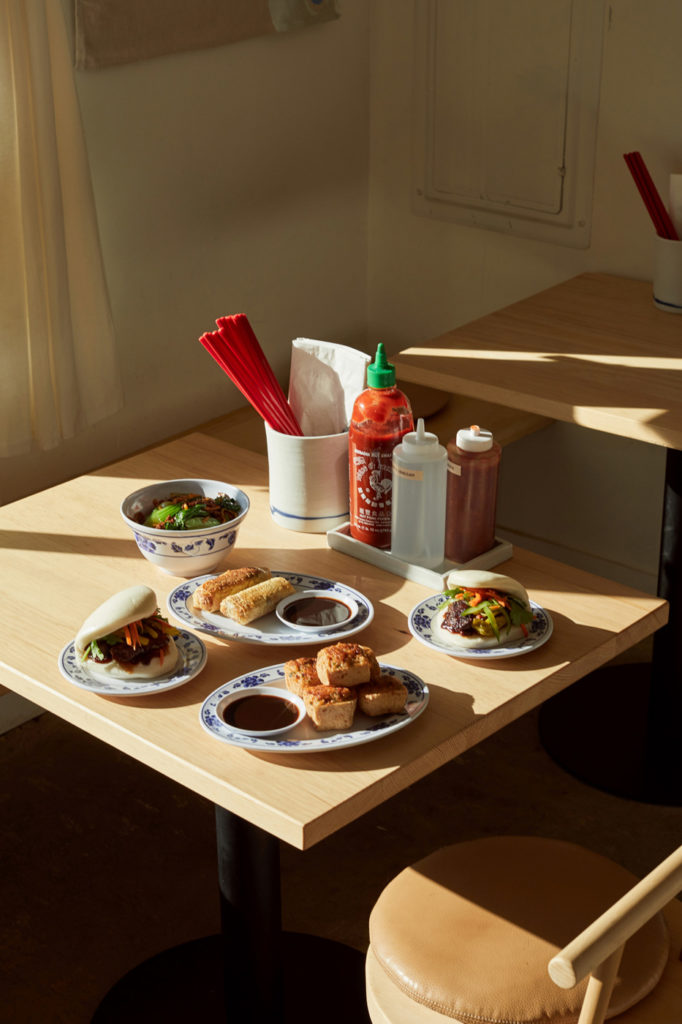
Cylinders and trays by Monica Galan of Salamat Ceramics house bright red chopsticks ripe for the picking, and there are bottles of chili garlic paste and white vinegar for eating the noodles “Mama’s Way.” Every furniture piece is designed by Keegan’s roommate, Peter Wilday, as well as the hand-thrown ceramic pendant lampshades that line the windows.
The staff is earnest, down to earth, and attentive. The magnetism is palpable. On Instagram, repeat patrons assert pride in establishing themselves as regulars, eagerly sharing the satisfaction of returning to the corner patio as summer nights warm up. It’s perfect weather for one of their deep-fried ice cream baos featuring flavors from Wanderlust creamery: mango sticky rice, Japanese Neapolitan, and a nod to the neighborhood’s heritage, ube.
“On any given night, there’s a family, an older couple, a young couple on a date, or a group of friends drinking and hanging out,” Keegan says. “I’m really excited about that, because it’s like how our house is. It doesn’t matter who you are.”





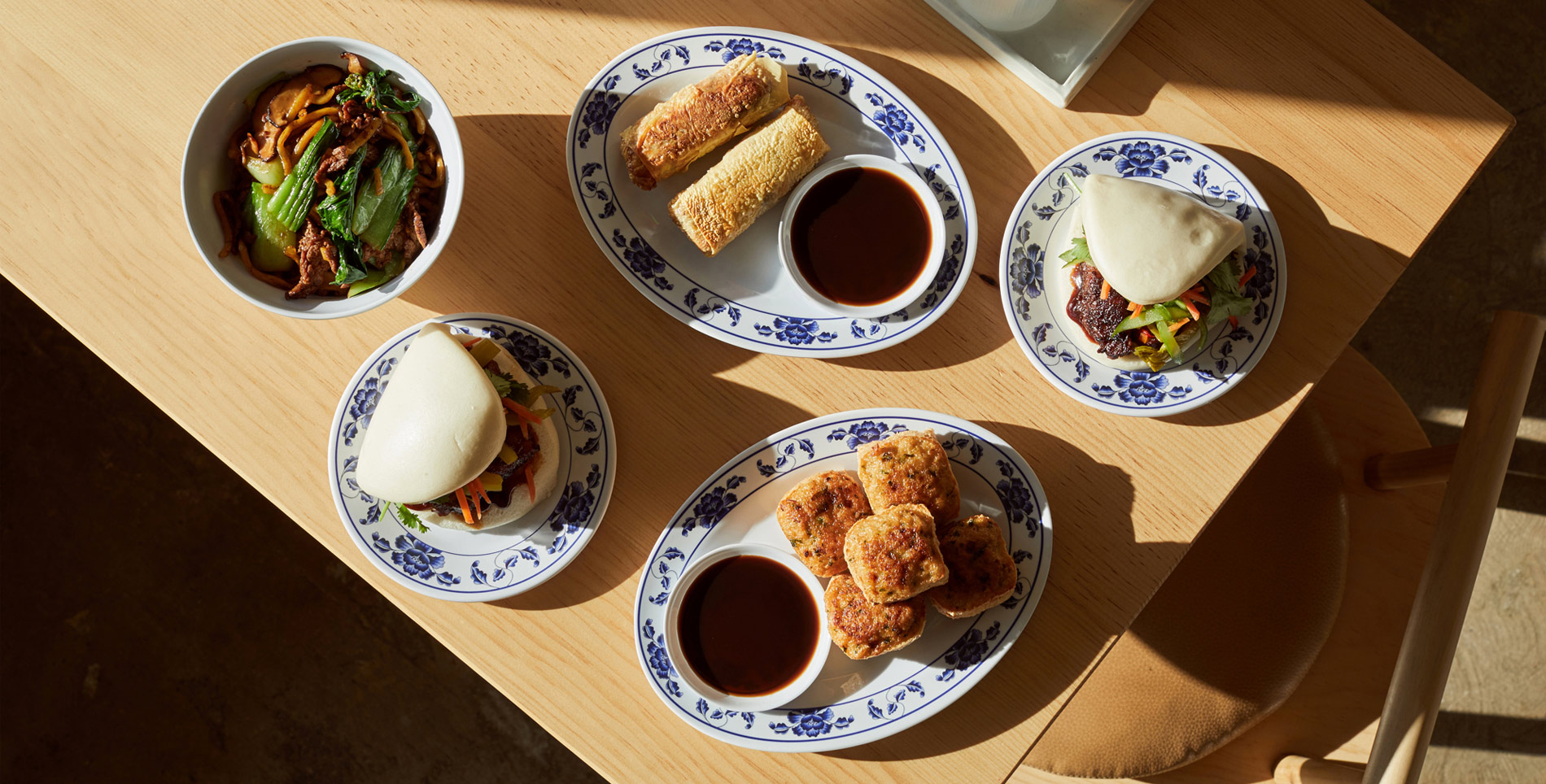

Our comments section is for members only.
Join today to gain exclusive access.